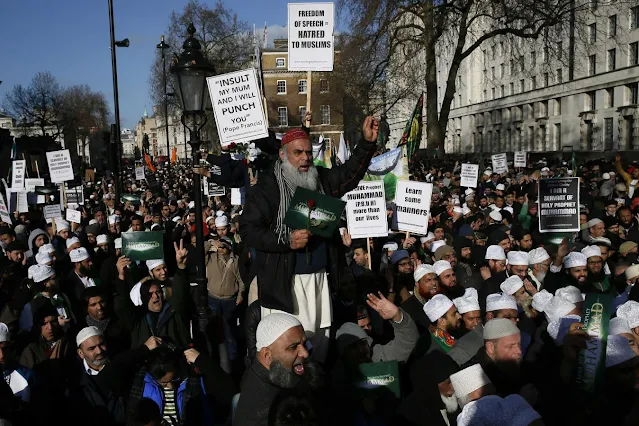In recent days, England's streets have erupted into chaos as groups waving national flags confront police, set fires to buildings, and block streets with barricades. These actions are led by far-right extremists who have co-opted the rhetoric of popular struggle, promoting nationalism and anti-Arab sentiment.
The unrest began on July 29, following a knife attack at a dance studio in northwest England that resulted in the deaths of three children and injuries to several others. Soon after, a fabricated name in Arabic circulated among far-right circles, aimed at blaming immigrant communities. Starting on July 31, a series of attacks ensued across various cities, including Hull, Liverpool, Bristol, Manchester, Stoke-on-Trent, Blackpool, and Belfast.
On August 4, one group targeted a refugee shelter in Rotherham, breaking windows and attempting to set the building ablaze, while another assault occurred at an immigrant shelter in Tamsworth. The violence appears to be coordinated by various far-right leaders, commentators, and organizations, intensifying a dangerous nationalist agenda.
The real source of the struggles faced by working people in Britain lies within the capitalist system itself, not with immigrants. For many Muslims and people of color in the UK, the recent riots led by far-right factions have fostered feelings of insecurity in a country they once called home.
People's protests
In response, there has been a significant people's uprising, particularly marked by revolutionary elements advocating for transformative societal change. On August 8, thousands took to the streets to stand against far-right groups, rallying around the powerful message, “We are much more than them.” Demonstrations in places such as North London, Bristol, and Newcastle were largely peaceful, with counter-protesters prominently declaring, "Refugees are welcome here."
Anticipating further violence, police deployed thousands of officers to monitor over 100 planned events. The wave of counter-protests across the UK represents a burgeoning resistance to racism, aiming to protect refugees, Muslims, and other marginalized groups from a resurgence of racial violence.
A key figure in inciting these tensions is Tommy Robinson, an anti-Muslim activist who falsely claimed that the initial attack was committed by a Muslim. He exploited public outrage, suggesting that organizations like Hamas and the Islamic State—fundamentally different entities—were plotting to take over London.
However, such attacks reflect deeper societal issues rather than purely external threats. The deepening social crisis in Britain, characterized by escalating misery, exploitation, and eroding social bonds, has paved the way for regressive ideologies, leading to heightened hatred.
Shifting the blame
The ruling class has long used "divide and rule" tactics to distract working people from the true causes of their struggles. Rather than immigrants, it is years of austerity measures that have led to declining public services.
Likewise, big corporations and multinational firms are responsible for unemployment and low wages, not immigrants. The real culprits behind the housing crisis are property speculators and landlords, not the immigrant population.
---
*Freelance journalist



Comments